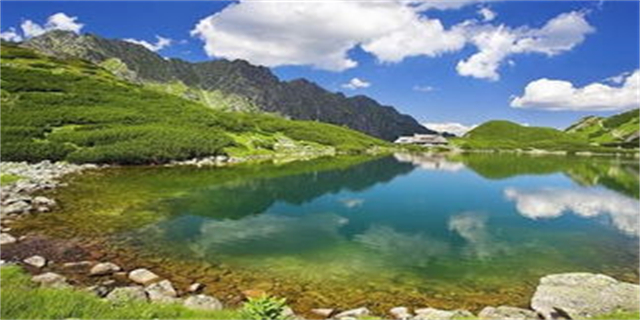carbonate(Carbonate An Essential Mineral for the Earth's Carbon Cycle)

Carbonate: An Essential Mineral for the Earth's Carbon Cycle
Carbonate is a crucial mineral that plays a significant role in the Earth's carbon cycle. This naturally occurring compound is composed of carbon and oxygen atoms and is found in various forms, including limestone, dolomite, and marble. Carbonate minerals are not only essential for the geological processes that shape our planet but also have important implications for climate regulation and the preservation of marine life. In this article, we will explore the significance of carbonate and its role in the Earth's carbon cycle.
The Formation of Carbonate Minerals
Carbonate minerals are primarily formed through the chemical reaction between carbon dioxide and water, a process known as carbonation. This reaction occurs naturally on the Earth's surface and within the ocean, where dissolved carbon dioxide reacts with water to form bicarbonate ions. These bicarbonate ions then combine with calcium or magnesium ions to form solid carbonate minerals, such as calcite or dolomite. The process of carbonation is responsible for the formation of vast carbonate deposits, such as limestone caves and coral reefs, which are essential for preserving the history of the Earth's climate and marine ecosystems.
Carbonate and the Earth's Carbon Cycle
The Earth's carbon cycle is a complex system of processes that regulate the distribution and exchange of carbon among the atmosphere, oceans, land, and living organisms. Carbonate minerals play a critical role in this cycle by acting as both a sink and a source of carbon. When carbon dioxide dissolves in water, it reacts with carbonate ions to form bicarbonate ions, effectively removing carbon dioxide from the atmosphere. This process, known as carbon sequestration, helps regulate the Earth's climate by reducing the concentration of greenhouse gases in the atmosphere.

On the other hand, carbonate minerals can also be a source of carbon dioxide. When carbonate rocks are exposed to the elements through weathering or volcanic activity, they release carbon dioxide back into the atmosphere through a process called decarbonation. Over geological timescales, this decarbonation process can contribute to the natural greenhouse effect and affect the Earth's climate. It is important to study and understand the balance between carbon sequestration and decarbonation to accurately predict and mitigate the impacts of climate change.
Impact on Marine Life
Carbonate minerals have a profound impact on marine life, particularly in the formation of coral reefs. Corals are marine organisms that build their skeletons through the extraction of carbonate ions from the seawater. These ions combine with calcium ions to form calcium carbonate, the primary component of coral reefs. Coral reefs are not only stunning natural wonders but also serve as habitats for countless marine species. They provide shelter, breeding grounds, and food sources for diverse ecosystems, making carbonate minerals essential for the preservation of marine biodiversity.
However, the increasing levels of carbon dioxide in the atmosphere due to human activities have led to ocean acidification. As more carbon dioxide dissolves into the ocean, the pH level decreases, making it increasingly difficult for corals and other marine organisms to extract carbonate ions. This poses a significant threat to the survival of coral reefs and the countless species that rely on them. Understanding the impact of ocean acidification on carbonate mineral formation is crucial for developing strategies to mitigate its effects on marine ecosystems.

In conclusion, carbonate minerals are crucial for the Earth's carbon cycle and have significant implications for climate regulation and the preservation of marine life. Their formation through carbonation and subsequent role in carbon sequestration and decarbonation influence the concentration of carbon dioxide in the atmosphere, thus affecting the Earth's climate over long timescales. Additionally, carbonate minerals play a vital role in the formation and survival of coral reefs, which are essential for marine biodiversity. It is imperative to study and understand carbonate minerals' impact on the Earth's systems to address climate change and protect marine ecosystems effectively.












